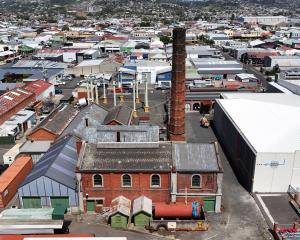Cruise ships used the lowest quality oil for fuel, had limited controls imposed on the dumping of waste at sea and the whole premise of the industry revolved around excessive consumption, he said.
People went ashore, bought things and, although it might be a slight exaggeration, they had "eight meals a day with snacks in between".
Associate Prof Brown, of Brock University in Ontario, Canada, is lecturing in a University of Otago tourism department summer school paper on sustainable transportation.
When an entire industry was built up on a premise of doing certain activities, as the cruise industry was, "you can't make them go away overnight".
In Dunedin, the cruise industry made a very significant economic impact, but the downside was the environmental effect, particularly on fragile island communities and their coastal ecosystems.
In some places where cruise visitors were directed to visit and spend only in certain areas - "the company store syndrome" - money from the visits did not flow through to the whole community.
Prof Brown said he was painting the situation in "very stark terms", but there was a "major negative balance" aspect to the cruise industry which was not generally well perceived.
He conceded it would not be simple to make changes to an industry which mostly operated outside national jurisdictions.
It was also difficult for individual shop owners or others to take a stand on principle if it was going to mean a cut to their business or pay.
What was needed was progressive policymakers who would look at the situation, decide what needed to be achieved to ensure environment, social and economic sustainability and how to get there.
Prof Brown said New Zealand had good examples of small eco tourism ventures which provided an income for operators but also a strong incentive to protect the environment involved.
Prof Brown acknowledged the irony of his own air travel, and that of 15 Canadian students taking his course, although he pointed out that all were encouraged to pay for plantings to offset their air travel.
While this was not ideal, returning to sailing ships, rather than flying was not realistic.
During the course, students will explore whether the consequences of the ever-increasing quest for mobility can be managed.
Prof Brown was hopeful that change was possible, but it was likely to come in incremental steps, citing the time it took to change thinking on tobacco.
He noted that of the 19 New Zealand students taking his paper, none was a tourism major, indicating there was wide interest in the subject.












